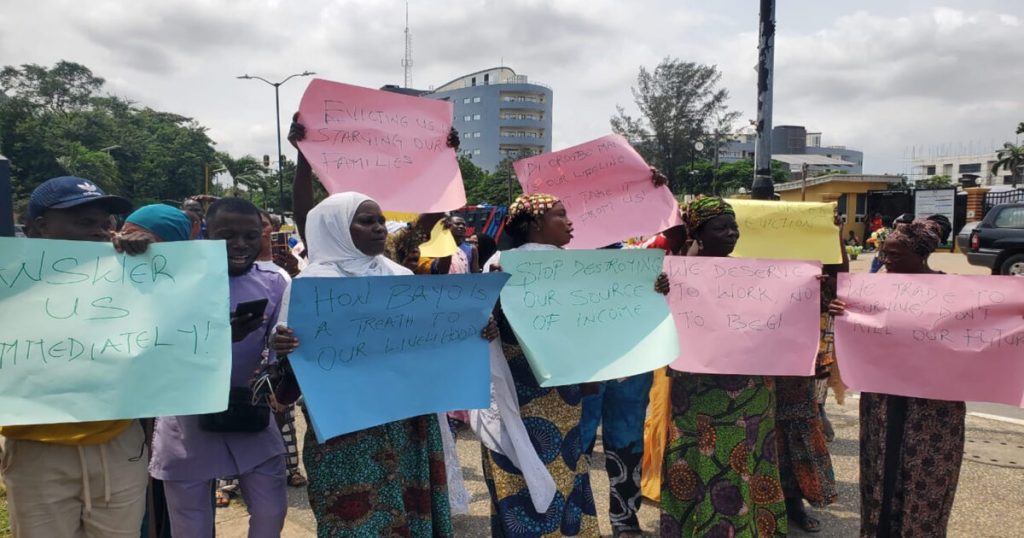The Idi-Orogbo Market in Ibeju-Lekki, Lagos State, became a scene of protest as traders, primarily butchers, voiced their grievances against an eviction notice issued by the state’s Ministry of Agriculture. The traders marched to the Lagos State House of Assembly and the All Progressives Congress (APC) secretariat, carrying placards and chanting solidarity songs. Their primary contention was the perceived injustice of the eviction notice, particularly after they had allegedly complied with all necessary registration procedures for their abattoir, paying a substantial sum of N2 million to the state government. They argued that this action threatened their livelihoods and the economic stability of thousands of families dependent on the market.
The core of the dispute centered on the 14-day abatement notice issued on August 3rd by the Veterinary Services Department of the Ministry of Agriculture. This notice accused the butchers of operating the Idi-Orogbo slaughter slab illegally, contravening the Lagos State Meat, Animal Traffic, Trading and Slaughtering Law of 2003. The notice stipulated that failure to comply would result in prosecution and the compulsory acquisition of the land by the state government. The traders, however, refuted these claims, insisting they had followed due process in registering and regularizing their operations.
Adding a layer of complexity to the situation, the traders alleged the involvement of a local politician in orchestrating their eviction. They claimed this individual was backing the establishment of a new, privately-owned market, to which they were being coerced into relocating. This assertion painted a picture of political maneuvering and potential exploitation, with the traders feeling pressured to abandon their established businesses for the benefit of a private entity. The accusation further claimed that this same politician had previously solicited their support during election campaigns, promising empowerment and assistance, creating a sense of betrayal among the traders.
In their formal complaint, addressed to the Speaker of the Lagos Assembly, Mudashiru Obasa, and the state APC Chairman, Cornelius Ojelabi, market leaders Suliat Ajibowu, Omotayo Bello, and Kazeem Egunjobi detailed their grievances. Their letter recounted the payment made for the abattoir’s registration, the subsequent lack of official approval, and the alleged harassment and threats they faced. They underscored the potential for economic hardship that their forced relocation would cause, highlighting the precarious situation of numerous families dependent on the market’s continued operation.
The traders’ appeal to the Assembly Speaker and the APC Chairman was a plea for intervention and protection against the perceived injustice they faced. They sought a resolution that would allow them to continue operating their businesses without the looming threat of eviction and the disruption of their livelihoods. Their protest and formal complaint served as a desperate attempt to bring their plight to the attention of those in positions of authority, hoping to garner support and prevent their forced removal from the Idi-Orogbo Market.
Responding to the traders’ protest at the APC secretariat, the party’s Deputy Chairman, Moshood Maiyegun, provided a glimmer of hope. He assured the concerned traders that the party leadership would investigate the matter, offering a potential avenue for dialogue and resolution. This response, while not a definitive solution, suggested a willingness to engage with the traders’ concerns and potentially mediate a compromise between the affected parties. The situation, however, remained tense, as the traders awaited the outcome of the party’s intervention and the ultimate fate of their businesses at the Idi-Orogbo Market.


